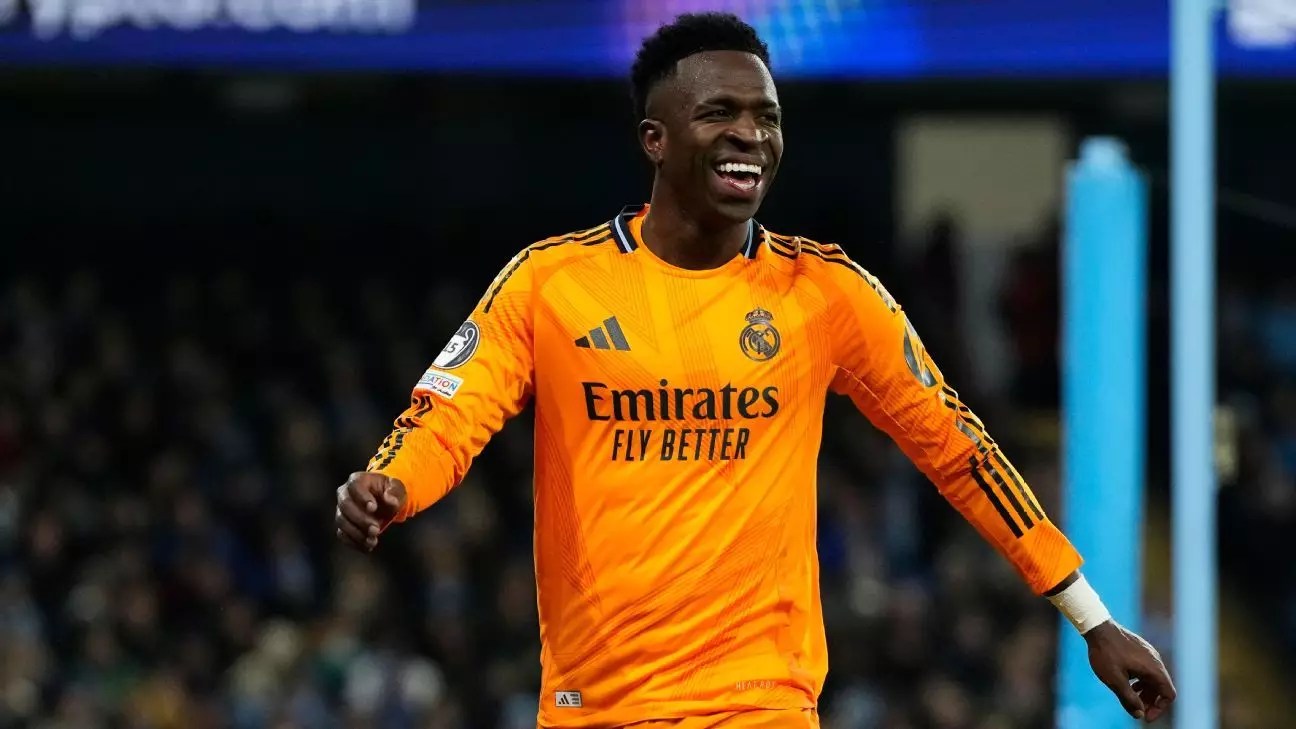In the world of football, player transfers and contract negotiations often dominate headlines, generating endless speculation and gossip. Currently, one of the most talked-about topics is the future of Brazilian forward Vinícius Júnior. With Saudi Arabia’s Pro League reportedly eager to secure the talented winger this summer, the focus has shifted back to Real Madrid head coach Carlo Ancelotti’s comments regarding the player’s situation. Ancelotti’s dismissive attitude towards the ongoing rumors suggests a steadfast commitment to retaining Vinícius at the club, despite the lure of becoming the highest-paid player in the world in Saudi Arabia.
Ancelotti recently stated, “I’m tired of this topic but I’m not worried.” His words indicate not just indifference to the swirling speculation, but also a firm belief in the player’s satisfaction and performance at Madrid. Vinícius himself has expressed a desire to continue his journey with the Spanish giants, reportedly stating after a Champions League match against Manchester City that he hopes to reach an agreement to extend his contract beyond 2027. This mutual understanding and happiness between player and coach highlight the importance of psychological stability in professional sports, especially amidst external pressures.
Vinícius’ situation elucidates the complex financial balancing act faced by clubs today, particularly in the context of lucrative offers from leagues outside of Europe. As clubs in the Saudi Pro League arm themselves with substantial financial resources, they have begun courting major talents, including Vinícius. While his agents have relayed financial demands to Real Madrid—aiming to position him as the top earner, even exceeding Kylian Mbappé—this raises questions about loyalty and the ultimate motivations behind player contracts.
This scenario also reflects the shifting landscape of football economics. With substantial investments pouring into leagues like the Saudi Pro League, players are now faced with challenging decisions that balance passion for the game against the reality of financial security. Vinícius’ contributions to Real Madrid, including pivotal roles in their Champions League victories and LaLiga successes, cannot be ignored. Nevertheless, the temptation of big money can often cloud judgment and lead to unexpected moves.
Ancelotti highlighted a critical perspective on the competition posed by the Saudi league in his comments. While he currently views it as less threatening than European leagues, he acknowledged the potential for that to change in the future. This statement alludes to a broader narrative in football: the balance of power is shifting. As nations and leagues around the world invest heavily in football, Europe could see its dominance challenged.
Brazil’s Vinícius is a symbol of this complexity. He represents the high aspirations of an emerging football market and the established legacy of clubs in Europe. Ancelotti’s recognition of Saudi Arabia’s efforts to prepare for the 2034 World Cup indicates an understanding that football’s landscape is dynamic and ever-evolving. His candidness about potentially coaching in a league like Saudi Arabia in the future suggests that coaches are also re-evaluating their career trajectories amid these shifts.
As Real Madrid continues to contend in LaLiga and the Champions League, Ancelotti’s commitment to maintaining a top-tier team hinges on key players like Vinícius. With matches against Osasuna and a return leg against Manchester City on the horizon, the pressure will continue to mount. Ancelotti himself has emphasized the importance of building on previous performances, a reminder that every match is not just a fight for points but also an opportunity to solidify player morale and commitment to the club.
The discussions surrounding Vinícius and the potential temptations of playing in Saudi Arabia are more than just contract negotiations—they are a testament to the evolving nature of football in the modern era. The results of these negotiations will have lasting implications not just for the players involved but also for clubs striving to contend at the highest levels while navigating an increasingly competitive global market.
The saga of Vinícius Júnior is emblematic of the broader challenges and opportunities facing football today. With passionate players, ambitious leagues, and experienced coaches like Ancelotti at the helm, the coming months will undoubtedly reshape the narrative, offering insights into where the future of the beautiful game is headed.


Leave a Reply